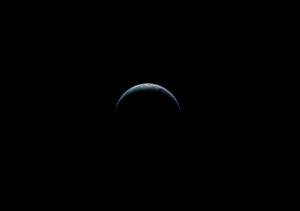This is an archive of prayers written for, or relevant to, the Fast of תִּשְׁעָה בְּאָב (Tishah b’Av, the 9th of the month of Av) in the Jewish calendar, commemorating the destruction of the first and second Temple in Jerusalem, among other catastrophes. Click here to contribute a prayer you have written for Tishah b’Av. Filter resources by Collaborator Name Filter resources by Tag Filter resources by Category Filter resources by Language Filter resources by Date Range
During the time before there was a State of Israel, those ideals in our hearts which we tried to practice and which we wanted others to practice, seemed not achievable where we were because, we felt we had no influence over our world where we were. And so, the longing for our homeland was tied into the longing for our dreams and our vision. Now that the state of Israel is with us, our dreams and our visions still remain distant from our lives and therefore when we say the Tisha B’av prayers we need to remind ourselves of the distance between that which we would have in this world and that which we do have. . . . Categories: Tags: Contributor(s): On Tisha be’Av, Jewish communities all over the world add a paragraph called Tefilat Naḥem (the prayer of comfort) to the standard daily Amidah (either for the afternoon service or for all services) praying for a return to Jerusalem. The traditional text discusses Jerusalem being defiled, in the hands of the idol worshipers, putting our people to the sword. But post-1967, Jerusalem has been under Israeli control, and this text has, to many people, felt no longer appropriate in the face of a Jerusalem being rebuilt. Many have written their own versions of a new Tefilat Naḥem for a Jerusalem under Israeli control, but I have felt dissatisfied with a lot of these. Some treat Jerusalem as already fully redeemed, which any glance at the news tells you isn’t the case. Others treat the major step in redeeming Jerusalem as building the Temple, but this seems to me to be only one eschatological part of a larger hope for Jerusalem. Jews have often considered the peace of Jerusalem to be a microcosm of the peace of all the earth. Thus for the Shabbat and Yom Tov Hashkivenu we pray for God to “spread the shelter of peace over us, all Israel, and Jerusalem.” The name Jerusalem, ירושלים, has been analyzed as “they will see peace” יראו שלום, since the peace of Jerusalem means all will see peace. But it’s clear that the peace of Jerusalem is not final or eternal, and it remains a city on the edge of a knife. So my version of Tefilat Naḥem prays not for a return, nor for a Temple, but for the peace of Jerusalem. It can be used at the same time as the standard Tefilat Naḥem (as an extension of the Birkat Yerushalayim in the Shmoneh Esreh for Tisha b’Av) or on its own. Thus I used four asterisks (a tetrapuncta) instead of God’s name, for those who would prefer to avoid a b’rakhah levatalah. Those who would prefer to use this blessing in the Amidah itself could replace the tetrapuncta with the name itself. . . . Categories: Tags: Contributor(s): “The City of Light” is a poem written by Felix Adler. The earliest publication I could find for it dates to 1882, in Unity: Freedom, Fellowship and Character in Religion vol. 8, no. 12 (16 Feb. 1882), p. 477. . . . Categories: Tags: 19th century C.E., 57th century A.M., English poetry, Ethical Humanism, ירושלם Jerusalem, mortality, משיח Moshiaḥ, Paris Commune, Prayers as poems, Siege of Paris (1870–1871), universalist, we are the music makers Contributor(s): “For Tisha be’Av: Our Cherished Litany of Loss” by Rabbi Menachem Creditor was first published on his website, here. . . . Categories: Tags: Contributor(s): |



